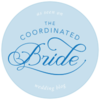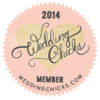 There is so much to do when planning your wedding and so many facets of planning that can be overwhelming to anyone. Here are some tips for how being flexible can help you to save money on your wedding.
Budget
There is so much to do when planning your wedding and so many facets of planning that can be overwhelming to anyone. Here are some tips for how being flexible can help you to save money on your wedding.
Budget
The first step in the process is to determine your budget. Without a defined budget, the planning can become a little chaotic. As a standard guide, food and drink will be approximately 45 percent of your budget; the venue will be approximately 20 percent; floral and décor approximately 15 percent; photography approximately 10 percent; and so forth. Statistics for the wedding industry indicate that the average wedding cost in the Washington DC is around $37,500. Be realistic and wise with your budget, and do not go into debt to have a wedding; invest in what you can actually afford.
Also keep in mind these eleven unexpected wedding costs.
1 – Gratuity If your wedding vendors do an outstanding job, you can and should feel free to tip them. With around 40 different vendors (Yes, 40!) all contributing to your wedding, tips can add up! Be sure to read our post about tipping wedding vendors in the Washington DC area. This post has more information about how much to tip and who you should tip in the DC area.
2 – Rain Plans Let’s face it, the weather in the Washington DC area is unpredictable. (As I’m writing this I’m looking out my window at nearly a foot of snow in downtown Washington DC!) If you are having any part of your wedding outside, you should have an indoor or alternative option. Sometimes ”plan b” options include wedding-day rentals like a tent, heaters, and additional space – these things cost money. In most cases, you’ll need to reserve the items or at the very least put a deposit down to hold them.
3 – Albums There are all types of ways to compile and cherish your wedding photographs. Many photographers charge an additional fee to design and produce a wedding album. Be sure to ask about it in advance, if that is something you might want after your wedding. Also, think about albums for others in your family like parents and grandparents.
4 – Gifts It is true that you will be getting the bulk of the gifts on your wedding day. However, there are some gifts that you might be giving. There are not set prices for these types of gifts, but certainly something you’ll want to budget for. It is very nice to give a gift to everyone in your wedding party and your wedding ceremony participants. You might also want to think about gifts for each other. Gifts are also nice for friends and family members who helped with the wedding. Other gifts include wedding favors and welcome bags for your guests.
5 – Dress Alterations In addition to the cost of your wedding dress, you will most likely need to have alternations done. Wedding dress alterations include hemming it so that it doesn’t drag on the ground and fixing the sleeves and straps. Alternations will ensure that your dress fits you perfectly, like a glove!
6 – Extra Guests The more guests you add to your list, the more money it will cost. Adding a few extra guests can really add up, especially in the Washington DC area. More guests means more food, more staff to serve the food, more linens, more centerpieces, more drinks, more escort cards, more drinks and more, more, more! Just as by cutting 10 guests from your guest list, you can save some money, you can contribute to budget over-runs just by adding 10 guests. (Be sure to read my list of 5 ways to save money on a DC area wedding!)
7 – Postage The design and production of wedding invitations are one cost, and the cost to mail them out to your guests is an additional cost. If you are doing a typical invitation suite, you’ll need two stamps per set: One for the invitation and one for the RSVP card. A USPS first class stamp is currently $0.49 and for two stamps for 200 invitations that is $196. However, most wedding invitations are too heavy for a first class stamp and sometimes the envelop is an odd shape, so these stamps will cost more. Be sure to factor in postage to your final invitation costs.
8 – Hotel Rooms for Yourself You will need a place to stay for your wedding and if you aren’t staying at home, that means a hotel. You might need the hotel room for a few nights throughout the weekend. Hotel rooms in the Washington DC area aren’t cheap and hotels do book up during peak tourist season, so planning advance for this is key. Think about where you want to stay during your wedding weekend and then factor in hotel rooms for yourself into your overall budget. (For more on hotels, be sure to read our post on hotel room blocks for weddings in the Washington DC area.)
9 – Vendor Needs There are a few little things that you might need to pay for your vendors such as parking and meals. Your vendors will be working a long day for you, and you’ll need to feed them. Your caterer should take care of feeding them, but the meals can cost anywhere from $15 to $60 per person. You might also be on the hook to pay for the parking for your wedding vendors, including your vendors like hair and make up artists and entertainment. These are typical costs, but maybe not costs you were expecting. These is probably the last things you want to deal with at the end of the night, so just ask about it in advance so you can be prepared.
10 – Taxes For all things, you’ll have to pay taxes. For big-ticket wedding items like your venue, food and beverage, the taxes can be quite a bit of money. Taxes in Washington DC are up to 10%, so if you are on a super tight budget you might save some money with a wedding in Maryland and Virginia where the taxes are 4-5%. Be very aware of initial proposals that don’t include taxes. You will be charged taxes in the end, but sometimes the first few proposals don’t include tax to make the overall cost look lower.
11 – Last Minute Items It is the week or two before your wedding and this is the time that you are paying for rush shipping to ensure that everything arrives on time. Or, even worse, this is the time that you are panicking and adding things onto your wedding day. This can be little things like your wedding garter or jewelry or craft supplies to complete any DIY projects you are working on. It can even be the last minute “I think I want a wedding video!” Either way, do your best to think of everything you’ll need for your wedding in advance to avoid last minute scrambling and extra costs.
Now that we have established guidelines for the budget process, let’s discuss five avenues in which you can save money on your wedding day by focusing on timing and flexibility.
The Venue
To reduce cost in the venue area of your wedding, be flexible with your date in regards to the time of year and day of the week. Most venues have peak periods when the negotiation for cost will be very minimal, so ask your venue coordinator what are the non-peak periods in which the cost of hosting an event will fit into your budget. Most non-peak periods in the DC area are in the winter months. Scheduling your wedding during a non-peak time could reduce the cost anywhere from 15-20 percent.
If you are flexible on the day of the week, you can save money as well. Traditional weddings occur on Saturdays (the most popular day). However, if you are open to a non-traditional day, consider hosting your wedding on a Wednesday through Sunday. The savings for a weekday wedding range from anywhere from 20-40 percent a huge savings!
When speaking with your venue coordinator, acknowledge your budget in the beginning of the conversation, and ask how and where you can save so that hosting your wedding at their location fits within your established budget.
Here are a list of some reasonably priced local venues to keep in mind.
The Mount Vernon Inn in Mount Vernon, Virginia.
Jefferson Patterson Park in St. Leonard, Maryland.
Oxon Hill Manor in Oxon Hill, Maryland.
The Bolger Conference Center in Potomac, Maryland
The Middleburg Community Center in Middleburg, VA.
Washington Navy Yard Catering and Conference Center
The Feast
To save money by considering time and flexibility, think non-traditional when it comes to your wedding meal. The traditional wedding reception is the standard evening dinner that contains a beef, chicken, or a fish entrée, preceded with the traditional hors d’oeuvre selections. Now think, non-traditional.
Consider hosting a brunch-style reception starting around late morning or early afternoon. The style of service for brunch receptions can either be served, buffet, or interactive stations (omelet station, waffle station, potato bar). The excitement around the brunch is that your guests that commonly attend events or weddings, have the opportunity to taste something different and have fun with some of their favorite breakfast treats.
Brunch receptions that I have hosted in the Washington DC area average around $85 to $100 per person versus a dinner reception around $175 to $200 per person. If you are flexible with the time of day for your reception, you can ultimately save, save, save!
Drinks
Your beverage selection is another route to consider cost reducing alternatives on your special day. One suggestion is to limit your beverage selection from a full bar to just wine and beer. To add a little spice to your selection, create two specialty cocktails from one type of alcohol.
Another suggestion is to eliminate alcoholic beverages from the bar completely and have mocktails. There are many flavorful and interesting mocktails. Have your venue or caterer be creative with various types of punches, teas and lemonades.
If you are hiring an outside caterer, an option is to purchase the alcohol yourself from a beverage company in which you can return bottles/cases that have not been opened. You can save as much as 50 percent by purchasing the alcohol yourself rather than having the caterer to purchase the alcohol for you. This method only works with an outside caterer. Unfortunately, you would not be able to purchase alcohol yourself when hosting your wedding at a hotel or a venue that does its own catering.
Floral Décor
To help preserve your financial resources during your wedding, you can also focus on timing and flexibility with your floral selection. Time is significant when selecting flowers. Select flowers that are in season year round, such as baby’s breath, calla lilies and roses. For example, although orchids are in season year round, phalaenopsis orchids are more expensive than dendrodium orchids. It is the same scenario with hydrangeas; your typical white or blue hydrangea is less expensive than a purple or pink hydrangea.
When discussing flowers with your floral designer, inquire with them about what is in season and how you can achieve the same look that is cost effective for you by being flexible with your flower selection.
Be flexible with your floral design style as well. You may want tall floral arrangements on every table, however, to reduce cost consider alternating high and low centerpieces for your tables. You can also alternate floral centerpieces with non-floral centerpieces like trio of cylinder vases with floating candles. Implementing some of these options can save anywhere from 10-20 percent off of your floral budget. Be sure to work closely with your floral designer and be open to alternative design concepts
If you are flexible with considering alternatives and flexible with time, you can plan the perfect wedding with the perfect budget!
Source: United with Love (Unitedwithlove.com)










